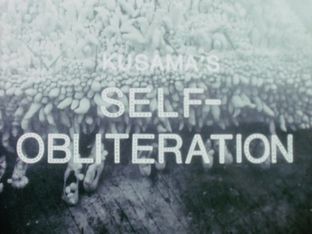BBC Documentaries
Kusama's Self-Obliteration (2014x306)
: 11, 2014
1968 film by Japanese artist Yayoi Kusama and the late experimental filmmaker Jud Yalkut. Kusama produces and stars in the film, which has a psychedelic feel and non-narrative structure. It starts with Kusama in rural upstate New York, covering animals, plants and a naked male body with polka dots. She uses this action throughout her career as a metaphor for giving up identity, abolishing uniqueness and becoming one with the universe - or 'self-obliteration'. The film goes on to show body-painting in the artist's installation environments or 'happenings'. These 'happenings' embraced the new hippie culture that had been on the rise in the US since the mid-60s, as well as sexual liberation, opposition to the Vietnam War and a yearning for change following civil rights injustices. They also saw a shift in art with a move away from the restraints of the gallery space and its conventions of traditional painting and sculpture. Kusama's 'happenings' took place in New York parks and public spaces such as Central Park and Brooklyn Bridge, as well as in galleries, and would often involve audio-visual-light performances where she painted naked models with paints or covered them in polka dots. The film was so popular in art-house film circles that Kusama set up a company to sell prints from the film. It also went on to win prizes in the Fourth International Experimental Film Competition in Belgium as well as the Maryland and Ann Arbor Film Festivals in the US.
